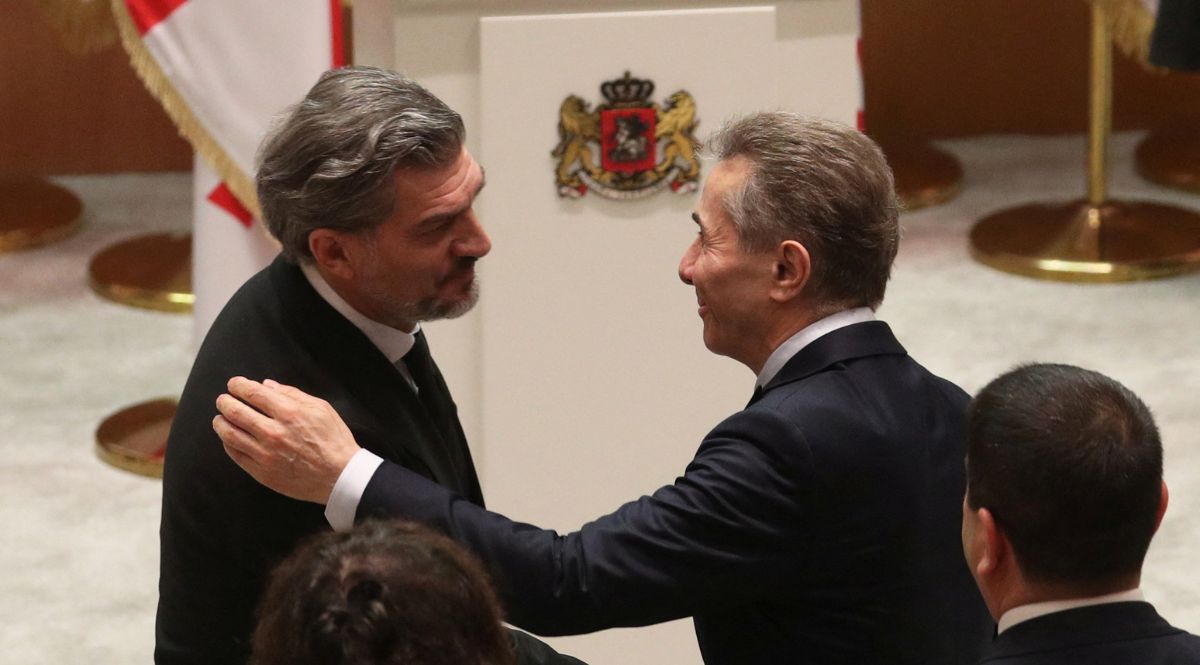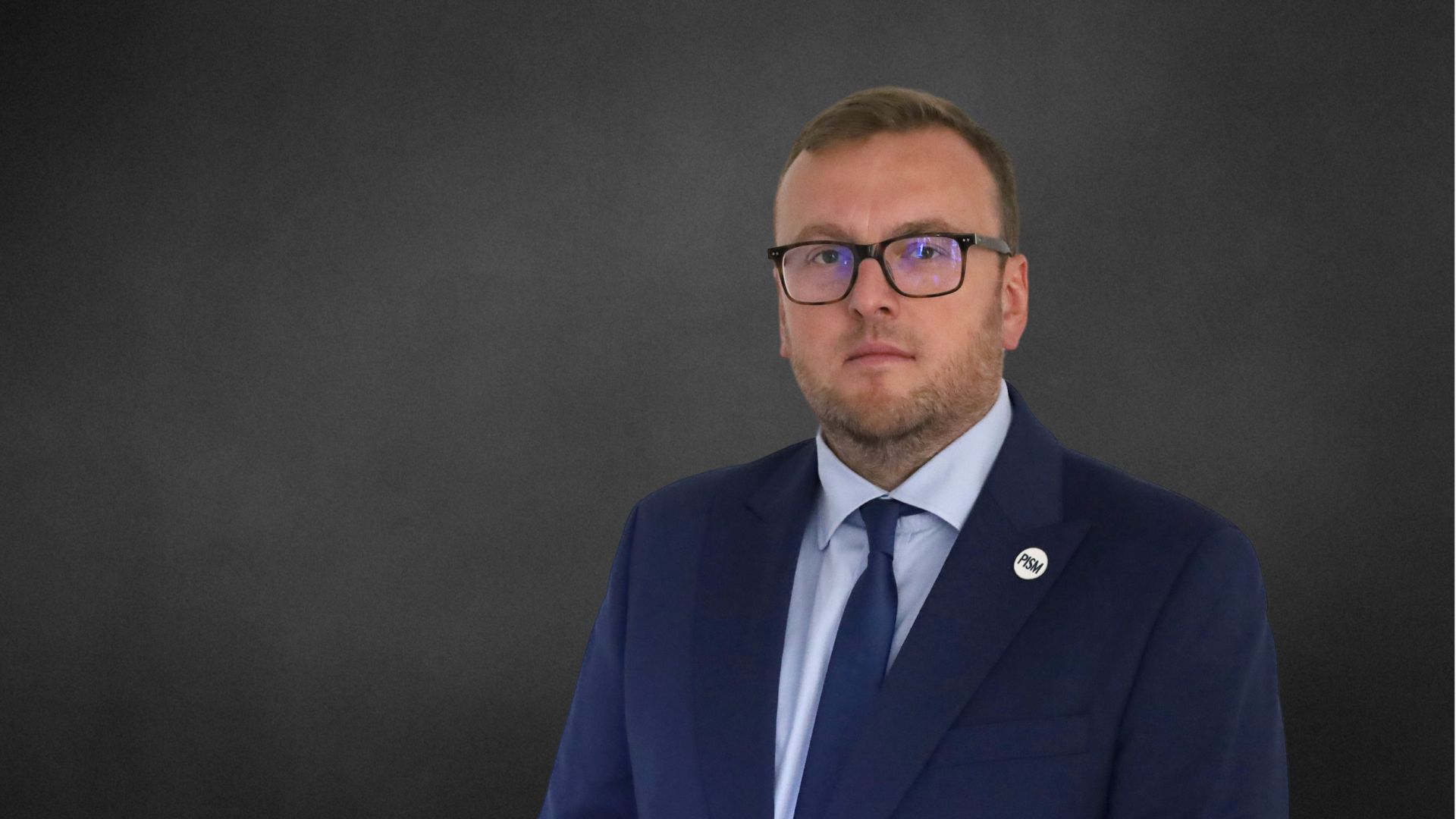Georgian Dream Grabs All the Power
Georgian Dream has a monopoly on power in the country with the election of its candidate for the last office not under its control, the presidency. In addition, it has adopted a series of legal amendments targeting anti-government protesters and civil society. The leader of the opposition to the ruling party is Salome Zurabishvili, who considers herself to still be the president of Georgia. The authoritarian course of the Georgian authorities is expected to intensify in the coming months.
 Irakli Gedenidze / Reuters / Forum
Irakli Gedenidze / Reuters / Forum
The four pro-Western opposition forces and President Salome Zurabishvili did not recognise the results of last 26 October’s parliamentary elections in which the ruling Georgian Dream (GD) won again. They consider them to have been rigged and called on the GD to hold new ones. The ruling camp rejected this demand, elected a de facto one-party parliament and appointed the new-old government of Irakli Kobakhidze, who declared that he was delaying Georgia’s accession negotiations with the EU until 2028, leading to an outbreak of public protests.
Election of a New President
Complementing GD’s seizure of full power was the election of a new president to replace Zurabishvili, who was in conflict with the ruling party. Her term of office expired on 29 December last year. As a result of a 2017 constitutional amendment, the new president, with significantly reduced powers, was elected for the first time by an electoral college (300 electors: 150 MPs and 150 local government representatives) instead of by popular vote. Due to the non-recognition of the parliamentary election results and the non-occupation of MPs’ seats by opposition politicians, they boycotted the election of the new president (opposition local government officials also did not participate in the vote). The only candidate put forward by the GD, Mikheil Kavelashvili, received 224 of the 225 votes of members of the college involved in the procedure. Both the opposition and Zurabishvili declared that they would not recognise his election as president.
Kavelashvili is controversial with Georgians. He is a former footballer with no experience in state office. In the last parliamentary term, he was a deputy of the People’s Power faction, known for its anti-Western views. It initiated laws on so-called foreign agents and on banning so-called homosexual propaganda, and other laws. The opposition stressed that Kavelashvili was named president because of his complete loyalty to the leader of the power camp, Bidzina Ivanishvili.
Actions of the Power Camp
In addition to taking control of all institutions in the state, the ruling party has taken steps to further consolidate its power. The GD pushed through legislative changes allowing for easier dismissal of heads of public administration institutions and their deputies, aimed at carrying out a political cleansing, according to the opposition. In addition, the GD has introduced changes to local government electoral law (local elections are due to be held in October this year), rewarding the party in power. Parliament raised the electoral threshold from 3% to 4% in proportional elections and abolished the requirement to obtain 40% of the vote in single-mandate constituencies to win a councillor seat in the first round.
After some demonstrators covered their faces and used pyrotechnics during anti-government protests, parliament adopted a package of amendments criminalising such actions. In addition, it toughened penalties for disrupting traffic during demonstrations and placing political materials in public spaces without permission. At the beginning of February this year, further legal amendments were enacted, including an increase in administrative detention from 15 to 60 days, higher fines or more jail time in cases of petty hooliganism, failure to obey or insulting police officers, vandalism, blocking court entrances, and an increase from three to five and from five to ten years’ imprisonment for public calls for violence or for resisting, threatening and using force against the police, respectively. According to the opposition, the aim of these changes to the law is to discourage Georgians from protesting.
In connection with the demonstrations, the rulers are using the justice system to repress protesters and journalists. They are detained and sent to jail on dubious charges. They face long prison sentences, such as that given to Mzia Amaglobeli, editor-in-chief of the Batumelebi and Netgazeti media outlets. There have also been detentions of opposition politicians (e.g., Nika Gvaramia of the Coalition for Change) or assaults on them by GD representatives (the beating of the head of the For Georgia party, Giorgi Gakharia).
In addition, as part of its consolidation of power, GD announced the establishment of a parliamentary investigative commission to look into what it called the systemic crimes of the United National Movement , the ruling party from 2004 to 2012, whose long-time leader was Georgia's third president, Mikheil Saakashvili. It can be assumed that the commission’s findings will be used by those in power to implement their election campaign announcements about banning the opposition.
Zurabishvili’s Continuation in Office
The incumbent president Zurabishvili has announced that she will continue in office until her successor is duly elected. According to her, this would only happen after the election of a new parliament with popular legitimacy. Furthermore, she declared cooperation with the opposition and announced meetings with various social groups and citizens in the country’s regions. So far, Zurabishvili has opened a new office and participated in an opposition rally in Zugdidi and a nationwide strike of employers and workers. In addition, Zurabishvili is conducting activities of a diplomatic nature. She attended Donald Trump’s swearing-in ceremony in Washington, D.C., and, on the occasion, held talks with the new secretaries of state and defence and took part in discussions organised by U.S. think tanks. At that time, she raised the issue of repeating the parliamentary elections, not recognising the current Georgian authorities and imposing further sanctions on them. She was also received by French President Emmanuel Macron in Paris and held a series of talks with European leaders at the Munich Security Conference.
Sanctions Against the Georgian Authorities
Following GD’s tightening of its authoritarian course at the end of last December, the U.S. Treasury Department announced individual sanctions against Ivanishvili. U.S. Sen. Joe Wilson, chairman of the Helsinki Committee of Congress, submitted a bill titled the “non-recognition of the Georgian nightmare”, ruling out the possibility of normalising U.S.-Georgia relations if Ivanishvili or persons associated with him were in power and calling on the U.S. authorities to recognise Zurabishvili as the incumbent Georgian president.
Due to opposition from Hungary and Slovakia, the EU failed to adopt sanctions against the GD leaders. The EU Foreign Affairs Council only decided to suspend visa-free travel for Georgian diplomats and officials, although the European Parliament had called for a tougher response from EU leaders in its resolution last December. Further steps—individual sanctions—were unilaterally adopted by Lithuania, Latvia, Estonia, and Ukraine, while the UK suspended aid programmes to the Georgian government.
Conclusions and Perspectives
The inauguration of Kavelashvili’s presidency marks a complete closure of the political system that Ivanishvili has been building in Georgia since his first victorious parliamentary elections in 2012. The de facto GD leader now controls all branches of government. In the coming months, one can expect further consolidation of GD’s power and action against protesters through arrests and harsh penalties ordered by the courts, the opposition (establishment of an investigative commission), and independent media and NGOs (a new law on so-called foreign agents along the lines of the US Foreign Agents Registration Act). This will reinforce the authoritarian nature of GD’s rule and increase Georgia’s isolation in the West. As a consequence of the new laws, the intensity of anti-government protests is likely to decrease in the coming weeks, but may re-intensify if those in power spark it (e.g., another decision distancing Georgia from its existing Western allies). By announcing that she is still the legal president of Georgia, Zurabishvili wants to continue to lead the broad opposition to the GD and bring about a rerun of the parliamentary elections. The chances of her succeeding could increase if, for example, the U.S. and the EU give formal recognition of her as Georgia’s sole and legitimate president.
Poland, in connection with its EU presidency, could as a first step offer to broker talks between GD and the opposition and Zurabishvili to resolve the current political crisis. If such an offer is rejected by the ruling camp, which seems highly likely, the EU might consider preparing a proposal for individual sanctions against GD figures along the lines of those imposed by the United States.



.png)
.png)
.png)